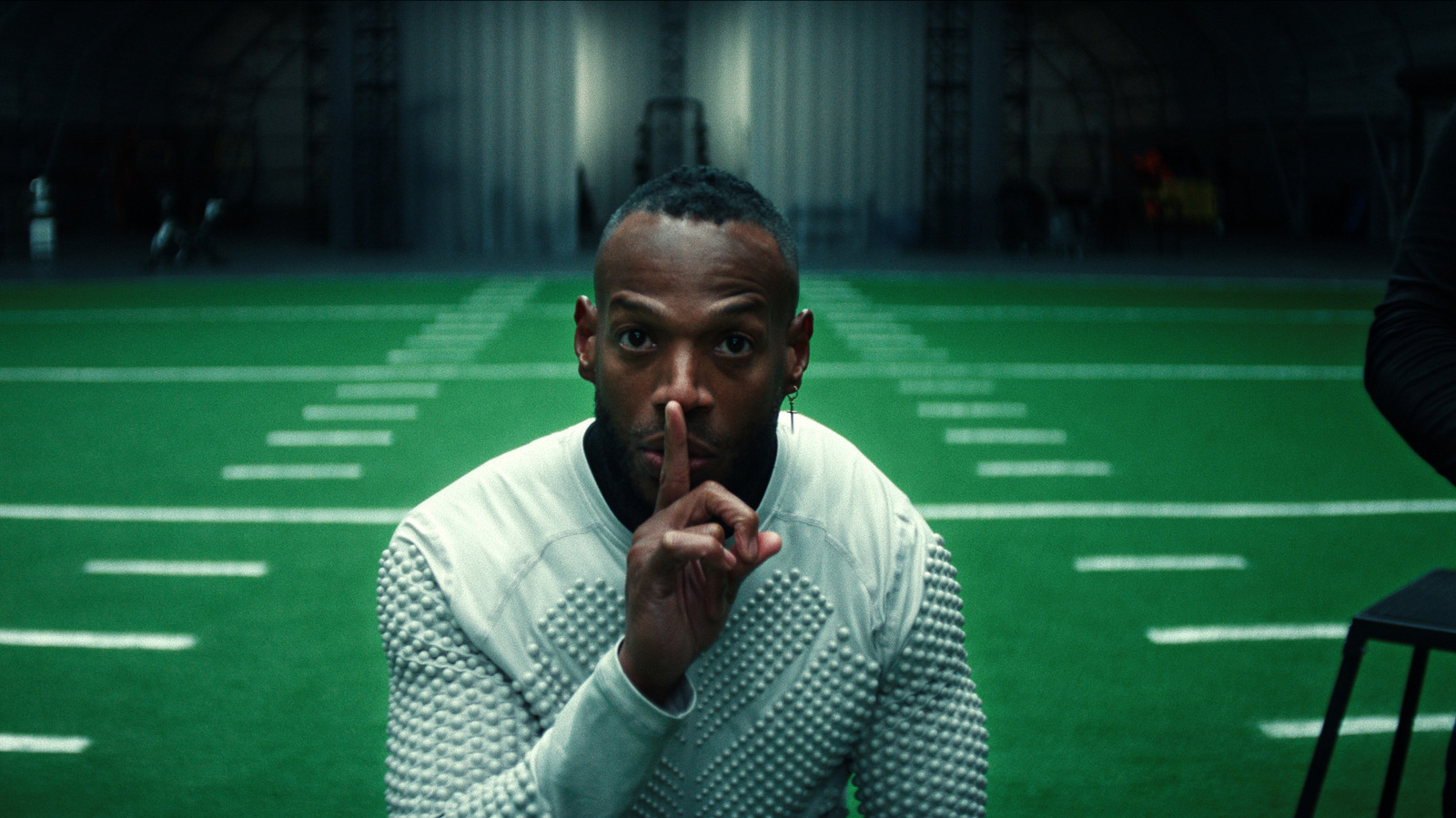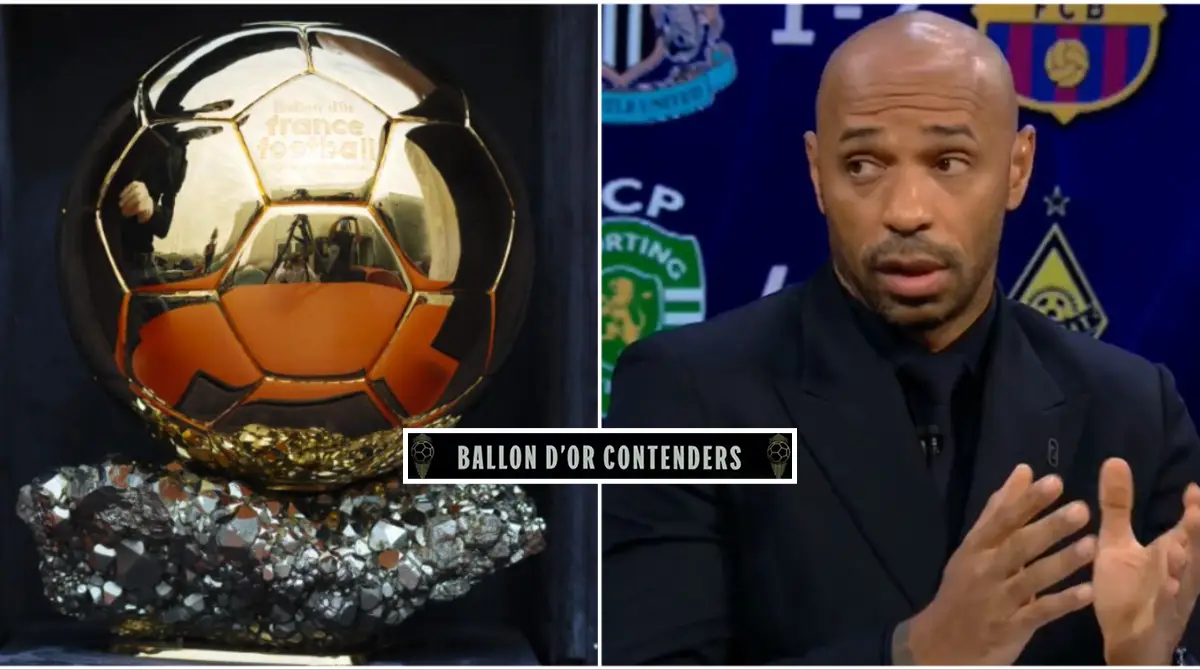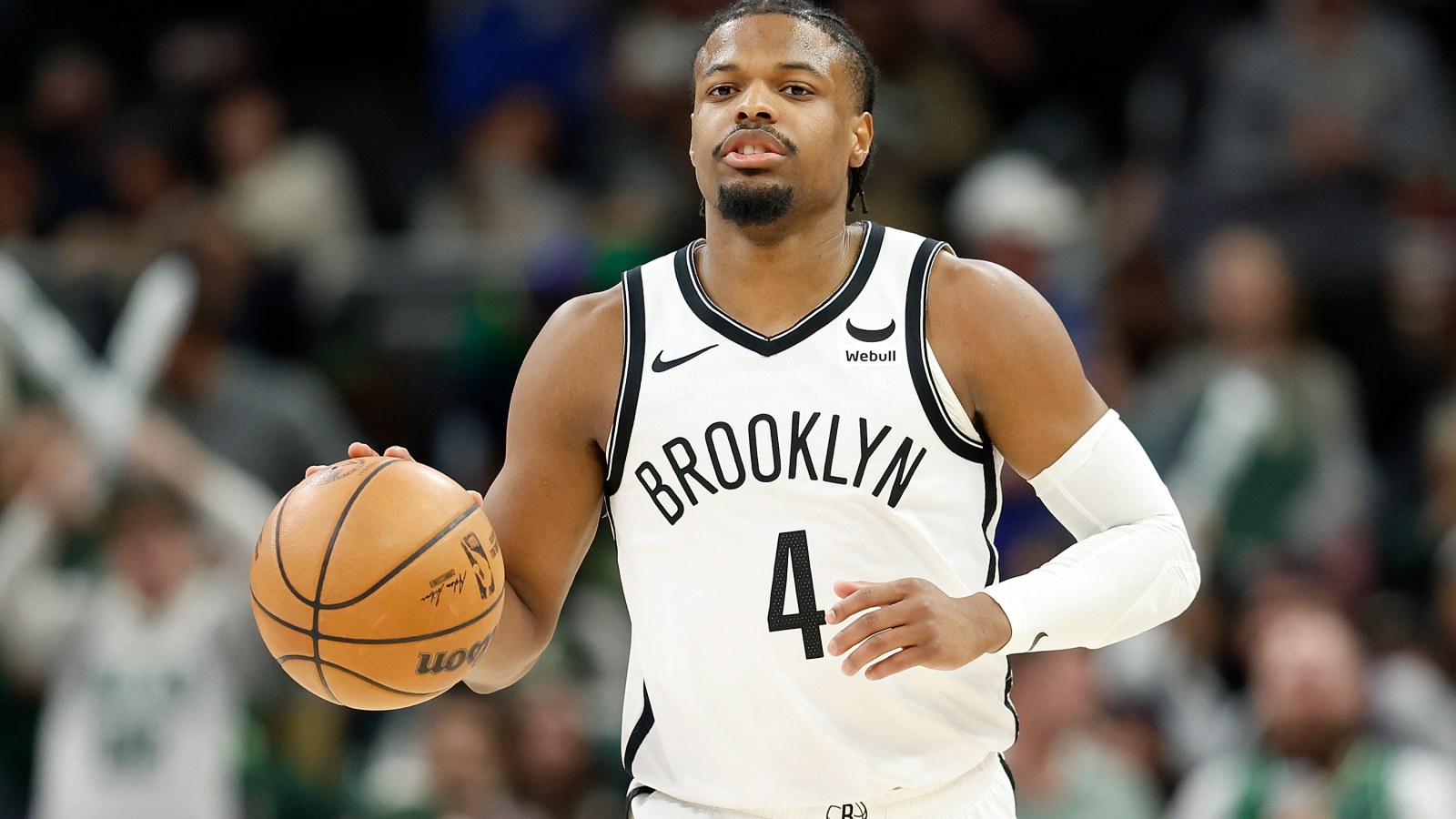
Warning: This article contains major spoilers for “Him.”
It isn’t every day that we get a sports-themed horror movie, particularly one with producer Jordan Peele’s name slapped all over the marketing. Naturally, there’s been no shortage of interest surrounding “Him,” mostly regarding how co-writer/director Justin Tipping would take the all-too-familiar idea of toxic football culture and turn it into an original horror story about one up-and-coming athlete’s willingness to sacrifice anything to make it to the big leagues. At the end of the day, that’s more or less the movie we’ve received … even if certain aspects are somewhat lacking, as /Film’s Chris Evangelista detailed in his review. But one particularly fascinating aspect of this script has to do with the biggest issue (by far) facing sports in general.
“Him” isn’t exactly a narrative that prioritizes silly things like “subtlety” or “restraint,” and it doesn’t take long to realize that it has a lot on its mind. But before the title card even pops up, the inciting action pretty much spells out the film’s most pressing thematic concern. After young quarterback Cameron Cade (Tyriq Withers) grew up idolizing star football player Isaiah White (Marlon Wayans), the time has finally come for him to take his biggest step yet to break into the professional level. (Interestingly, the words “National Football League” are never once mentioned or shown on-screen at any point … likely for legal reasons, given the film’s less-than-flattering portrayal of the sport.) But before he can even get his career off the ground, a deranged fan in an outrageous getup puts a dent into those plans — quite literally — with one swing of a hammer to Cam’s head.
From there, “Him” takes an increasingly heightened and hallucinatory approach to Cam’s journey to become the greatest of all time. But even amid the nightmarish and bizarre imagery that follows, one ongoing thread remains clear. In an environment where athletes are routinely treated as commodities and dehumanized, “Him” points the blame squarely at two main culprits: Team owners and fanbases alike.
For a movie that might as well be the physical manifestation of that “I know writers who use subtext” meme, “Him” takes a surprisingly thoughtful and rather bold look into what’s bound to be a controversial topic. There’s a reason why Universal Pictures leaned into the idea of making this movie’s marketing campaign come across like a mix of Nike ads run through a Jordan Peele horror filter. American football stands as the most popular sport in North America, so making an effort to appeal directly to the overall fanbase in order to reach the box office red zone? That’s as straightforward and logical a strategy as it gets. But once those butts ended up in theater seats, director Justin Tipping and credited co-writers Zack Akers and Skip Bronkie pulled a bit of a switcheroo on them. It was fair to assume that a movie like this wouldn’t necessarily have the most optimistic viewpoint on football culture. But what audiences may not have expected was a fairly direct cautionary tale about how we engage with, worship, and profit off of our favorite athletes.
“Him” doesn’t just address this through that early shocker that leads to Cam’s football lace-shaped staples on his head and a concussion, to boot, but also through its most enigmatic and disturbing subplot. When Cam agrees to save his floundering career by training with the reclusive (and soon-to-retire) Isaiah White for a week, he immediately runs into the extremes of fandom. Outside of Isaiah’s desert complex, a group of obsessive fans holding up signs calling Isaiah “the chosen one” and sporting face paint attack Cam’s car, screaming vulgarities about how they don’t “want” him. He’s looked at as a threat and a potential replacement, and that makes him the enemy.
Most movies would’ve dropped this right then and there, having already made a strong point. “Him” isn’t like most movies, however, and this escalates to a dramatic (and possibly hallucinated?) confrontation as harrowing as it is unexpected. The same fan (played by Naomi Grossman) and two accessories physically attack Cam in a vulnerable moment, using an extreme example to make a salient point. Especially with the proliferation of online sports betting, it’s easier than ever for fans to showcase their worst selves. It’s no coincidence that “Him” takes such behavior to its logical conclusion.
But before anyone mistakes “Him” as a movie only about the most unhinged fanatics out there, the bloody finale makes it abundantly apparent that the true blame for the biggest problem in sports goes all the way to the top. In a dreamlike sequence where Cam emerges from Isaiah’s training complex, covered in blood after fighting his (former) mentor to the death, he finds himself on a football field arrayed as if it were opening day of the NFL season. The owner of the Saviors (again, subtlety is for cowards), the team that Cam has been dreaming of joining his whole life, sits at a podium alongside his agent Tom (Tim Heidecker) and several other shadowy figures — all of whom are wearing unsettling masks, some literally made out of pigskin. As Isaiah’s mysterious wife Elsie (Julia Fox) urges Cam to sign on the dotted line of a life-changing contract and essentially hand over his autonomy as a person, something within him finally snaps and unleashes a bloodbath for the ages against those who’ve been responsible for his suffering all along.
It doesn’t take much creative license to see a film set staged almost like a slave auction and interpret this as a very cogent metaphor for talented athletes (many of whom are people of color, like Cam) being subjected to the most dehumanizing conditions imaginable. No, nobody will weep for multimillionaire athletes who’ve made it to stardom and achieved their dreams … but that doesn’t negate the very real problem of billionaires taking full advantage of this workforce and abusing them in order to make a buck. Isaiah might ultimately take the role of antagonist against Cam by the end, but it’s hardly a stretch to say that the true villains are the (predominantly white) men in positions of power who made all this possible in the first place. None of them had his well-being in mind, but all stood to profit from talent and ability that far exceeds their own. This might not be as elegant a racial metaphor as “Get Out” or “Us,” granted, but “Him” can’t be accused of having nothing on its mind.
“Him” is now playing in theaters.



